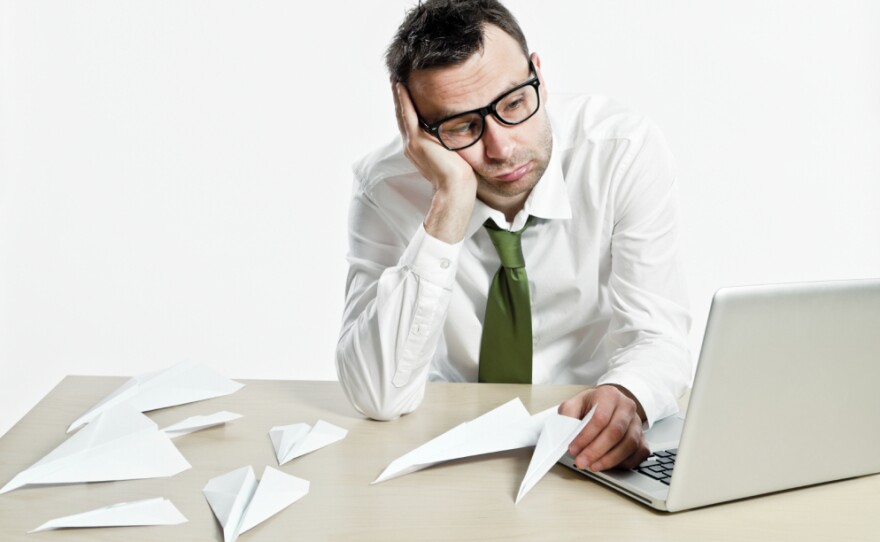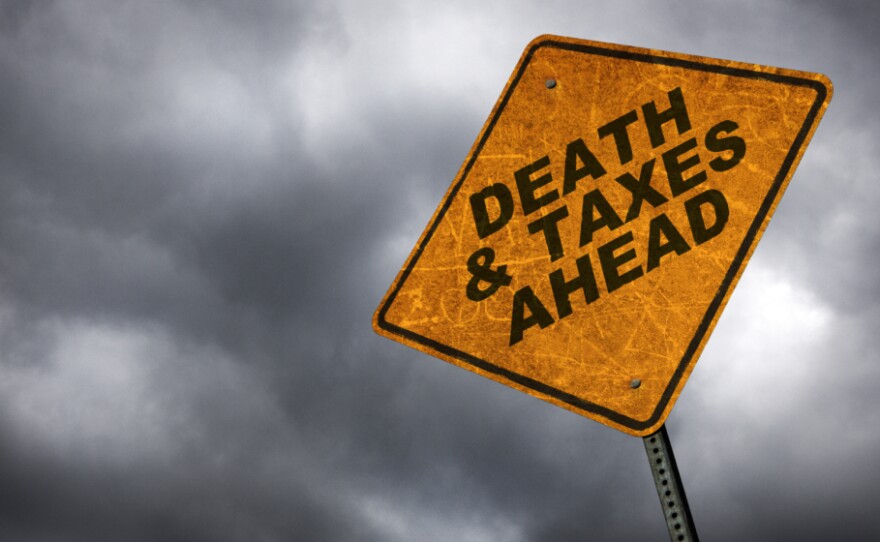When it comes to unemployment reports in an election year, it's not just the data — it's also the spin.
Friday's jobs report could be seen as good news — at 8.5 percent, it's the lowest in three years. Good news for President Obama? Not according to Republican presidential hopeful Mitt Romney, who lost no time in pointing out that the number is still above 8 percent — the figure that the president said would be the worst case under his 2009 stimulus package.
So where is the economy heading this year, and what does it mean for November's election? That's the question we put to three economists, one of whom is relatively optimistic; one who feels Americans will just muddle through the next year; and lastly, one whose viewpoint is more than a little gut-wrenching. We're calling their viewpoints the Good, the Bad and the Ugly.

THE GOOD
Brian Wesbury, chief economist at First Trust in Wheaton, Ill.
OVERALL ECONOMY: Gaining steam
UNEMPLOYMENT RATE: 8 percent by Election Day
POLITICAL IMPLICATIONS: Good for Democrats
Since the first glimmers of hope for improvement emerged in the economy back in 2009, Wesbury has been consistently more upbeat than many of his fellow economists. He sees the recent trend in the unemployment rate and other economic measures as justifying that early optimism.
"I think this is going to be a better year than the pessimistic, dour outlook that many people have laid out," Wesbury says.
As the housing market bottoms out, expect to see an uptick in construction, which is traditionally the key to pulling the country out of recession, he says. "I think that's going to be one of the areas that add to growth."
Manufacturing also is gaining, but because of new efficiencies, will be less of a source of jobs than in the past, Wesbury says.
Cloud computing, smartphones and tablet computers are on the cusp of a new technological revolution, similar to the advent of the Internet in the 1990s, that will help drive the economy forward, he says.
Europe? Wesbury says not to worry — too much. He compares it to the Latin American debt crisis of the early '80s and Japan's woes a decade later.
"The U.S. weathered those crises and still posted strong growth," he notes.
By Election Day, the unemployment rate will be about 8 percent, "possibly 7.9 percent," says Wesbury. "That's going to be a sort of level and trajectory that President Obama is going to be able to point to and say his policies are having an effect."

THE BAD
Nigel Gault, chief U.S. economist, IHS Global Insight
OVERALL ECONOMY: More of the same
UNEMPLOYMENT RATE: Still above 8 percent by Election Day
POLITICAL IMPLICATIONS: A tossup
Gault's forecasts for 2012 look a lot like those for 2011. "It's another year of modest growth," he says.
"Internally, I think one of the most positive things is that housing has finally bottomed out and will begin to pick up. It's just a question of how rapidly it picks up. So, instead of housing being a big drag on the economy, it's going to be a modest plus," he says.
Business cash flow and profitability are looking quite good too, and the credit crunch has eased somewhat, meaning companies will find it a bit easier to borrow, he says. "But the big question is whether businesses are going to be willing to go out and spend and hire in a really big way."
Gault thinks companies will hire more and spend more, but they are still going to be cautious.
And the unemployment rate will still be above 8 percent by Election Day, he predicts. As hiring picks up, the size of the labor force will grow as people who had given up their job searches get back in the mix. "That's going to make it more difficult to get the unemployment rate back down," he says.
The big red flag is the situation in Europe, which Gault calls "the single biggest risk to the U.S." If the contagion from Greece spreads to Spain and Italy, "you could get a panic in the financial markets, and that would have repercussions for the U.S., because European banks would be unable to fulfill their obligations to U.S. banks."
Gault says politically the unemployment rate is important. People "will focus on the headline number and ignore the details of what it means," he notes.
"The economy should — I stress, should — be good for the Republicans," he says. "With the unemployment rate above 8 percent, incumbents generally lose."

THE UGLY
David Levy, chairman of the independent Jerome Levy Forecasting Center
OVERALL ECONOMY: Watch out
UNEMPLOYMENT RATE: "Back in double digits" by Election Day
POLITICAL IMPLICATIONS: "Not good for incumbents"
To say Levy's outlook for the next year — and well beyond that — is negative would be an understatement. He calls the current situation a "contained depression" that will last through this decade.
The last recession was out of the ordinary, he notes. In past downturns, it's been mostly about production getting ahead of sales. But the recession that began in 2008 was unlike those in 1961 or 1982. This time it's about private debt.
"There is a profound, multiyear adjustment going on in the United States as private balance sheets radically shrink," he says. "This corrective process, which will ultimately get us to a healthier place, makes it impossible for the economy to function properly."
Levy says it could have been worse and that both the government bailout of the financial sector and stimulus spending were necessary. Without them, "we would have fallen into another Great Depression," he says.
Even so, the bits of good news we're hearing now are just the calm before a new storm, he says. The U.S. economy is being silently stalked by Europe. Levy says the debt crisis there is far from over, and America's exposure to it is high.
"The biggest problem for the United States is that we're about to be hit by a huge storm blowing in from Europe at a time when we're still looking pretty soggy," he says.
The whole framework of the political discussion is about to be upended by chaos in Europe, Levy says.
What is the proper size of the government, what programs should it bolster, where should it invest? All those discussions are about to take a back seat to the impact of that European crisis, Levy predicts.
"It's going to be a very confusing and distressing period for a lot of Americans," he says.
Copyright 2022 NPR. To see more, visit https://www.npr.org. 9(MDAzMjM2NDYzMDEyMzc1Njk5NjAxNzY3OQ001))





